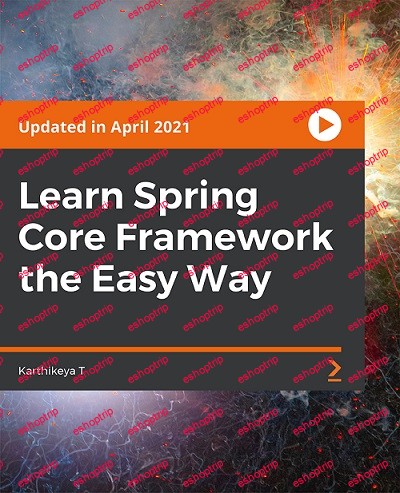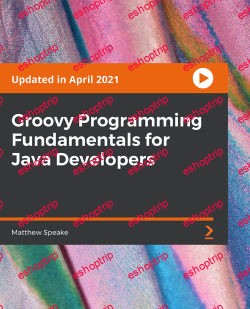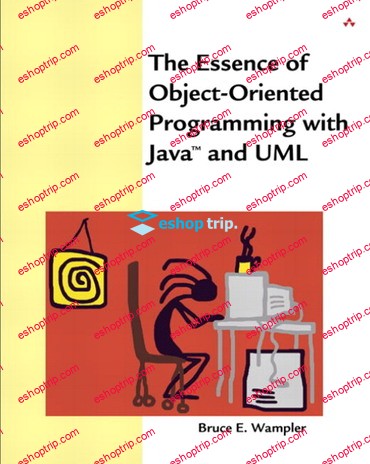Published 2/2023
MP4 | Video: h264, 1280×720 | Audio: AAC, 44.1 KHz
Language: English | Size: 2.02 GB | Duration: 5h 57m
Competitive coding in Java
What you’ll learn
Can attain high level problem solving skills using Data structures and Algorithms
Useful for clearing Online tests in Hacker rank, Hacker earth etc
Can be ready for taking interviews which focus on DSA
You will become a good problem solver and developer
You will develop your debugging skills
Requirements
Need to know Java programming
Have a great desire to learn DSA
Description
This course mainly focuses on problem-solving using Data structures and algorithms in Java. Why DSA?A person who has strong DSA skills will have a better and more efficient way of solving problems. A lot of software companies conduct DSA rounds to test a candidate’s problem-solving and coding skills.Big companies like Google, FaceBook, Amazon, PayPal, Microsoft, etc ask DSA questions in most of their coding rounds.DSA skills are required for competitive coding and for clearing online coding interviews from Hackerrank, Hacker earth etc.Why DSA skill is asked in interviews?Big companies like Facebook and Google can’t ask you about the technologies required for work because they’re proprietary. People who haven’t worked at Google haven’t ever seen the technologies they’ll be using because they don’t exist outside of Google. You can’t effectively test someone on something they have no way of knowing.So instead you want to test people on how smart they are, how good they are at solving problems, and how quickly they can pick up new technologies. This is very difficult to test in an hour, so algorithms and data structures are used.How this course is structured?This course uses Leetcode questions to demonstrate how problems can be solved using DSA. Some of the famous interview questions are taken and solved topic-wise. Debugger is used to demonstrate the code flow in Leetcode. What are the topics covered in this course?Basics of Data structures – what are arrays, strings, sets, lists, maps and how to declare, iterate and access them.ArraysStringsLinkedListStackDepth-first searchTreeTopics – Graph, Dynamic programming, and backtracking will be added shortly in a few weeks
Overview
Section 1: Basic concepts of Data structures
Lecture 1 Time and Space Complexity
Lecture 2 What is Array and How do we work with Arrays
Lecture 3 Handling Strings
Lecture 4 List and it’s types
Lecture 5 Set and it’s types
Lecture 6 Maps and it’s types
Lecture 7 What is Stack
Lecture 8 What is Queue
Section 2: Arrays
Lecture 9 Find Duplicate element
Lecture 10 Valid mountain array using two pointer approach
Lecture 11 Sorted squares
Section 3: Strings
Lecture 12 First non-repeating Character in a string
Lecture 13 Find Anagram
Lecture 14 Group Anagrams
Lecture 15 Valid string with parenthesis
Section 4: LinkedList
Lecture 16 Print all elements in LinkedList
Lecture 17 Deleting a node in Linkedlist
Lecture 18 Find Middle element in Linkedlist
Lecture 19 Remove nth node from end
Lecture 20 Reverse a LinkedList
Section 5: Stack
Lecture 21 Valid Parenthesis
Lecture 22 Backspace string compare
Lecture 23 Simplify path
Lecture 24 Next greater element
Section 6: Depth First Search in 2D Arrays
Lecture 25 Flood fill
Lecture 26 Number of islands
Lecture 27 Maximum area of island
Section 7: Dynamic Programming
Lecture 28 Minimum path sum
Section 8: Trees
Lecture 29 BFS in Trees
Lecture 30 Zig Zag traversal in Tree
Lecture 31 Right View of Tree
Lecture 32 DFS – In order Traversal
Lecture 33 DFS – Pre order traversal
Lecture 34 DFS – Post order Traversal
Beginner in learning Data structures,Computer science students,Candidates who are looking forward to clear DSA rounds in any interview
HOMEPAGE
https://anonymz.com/?https://www.udemy.com/course/dsa-preparation/











Reviews
There are no reviews yet.